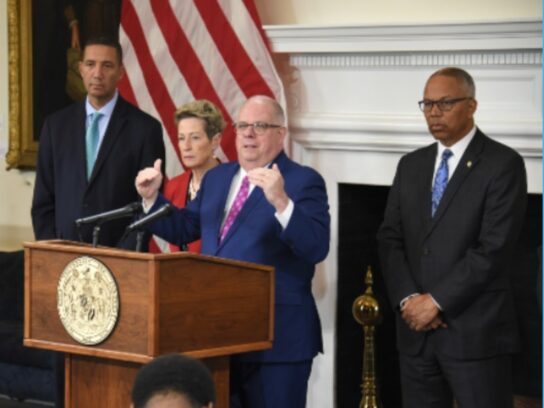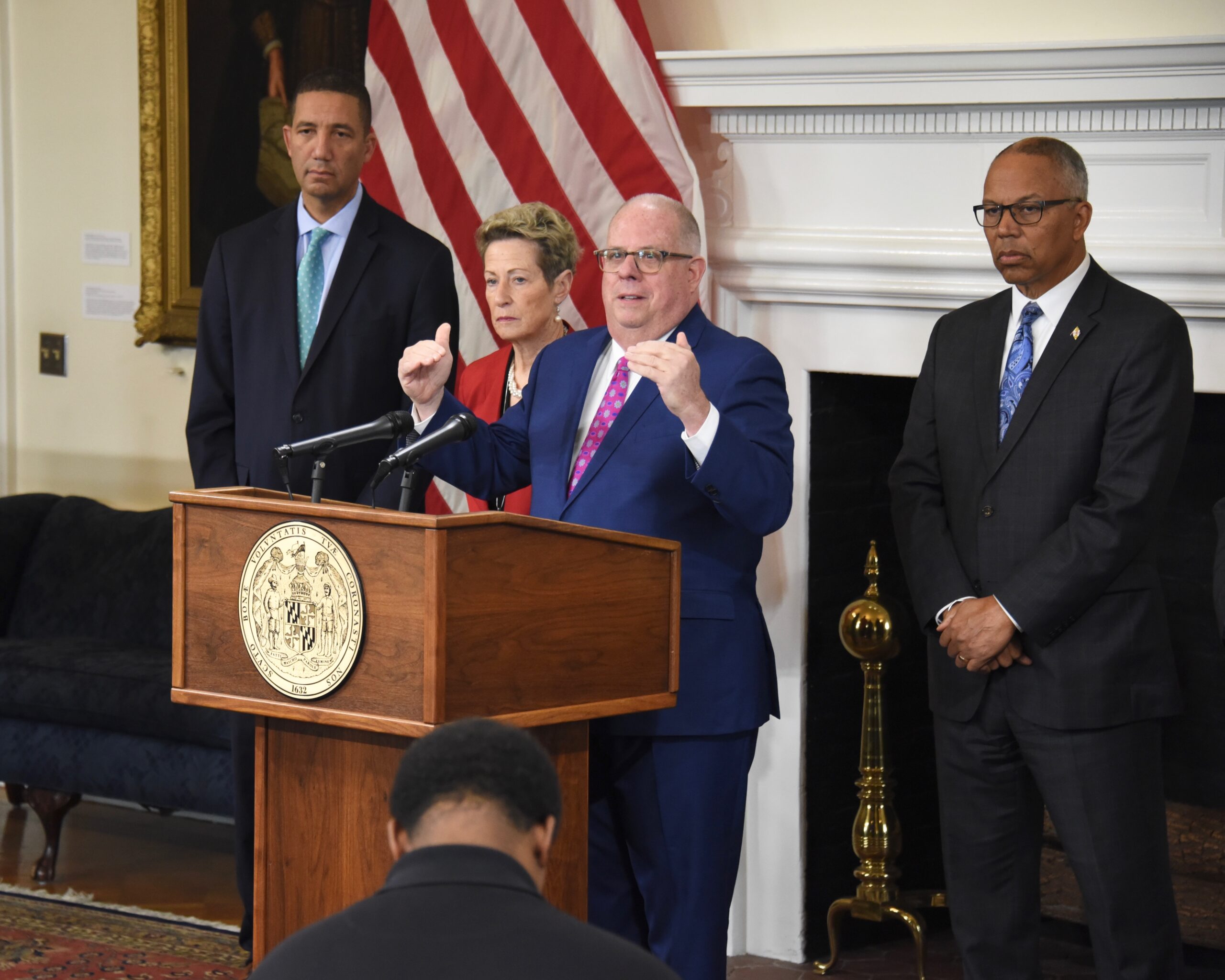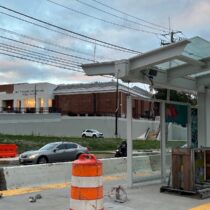
Gov. Larry Hogan announced education legislation Thursday for next year’s General Assembly session that includes greater money for school construction and new accountability efforts for underperforming schools.
Hogan would pump $3.8 billion in school construction funding over the next five years, covering all the new building requests — as well as upgrades and repairs — from Baltimore city and Maryland’s 23 counties.
The money would come from a share of casino revenues. Hogan’s legislation would give the Maryland Stadium Authority oversight of the additional school construction funds.
At a State House news conference, Hogan touted his record in school construction spending, which has totaled $32 billion, exceeding funding levels required by formulas mandated by legislation.
“However, investing record amounts of money is not going to solve all of the problems of our local schools,” Hogan told reporters.
The governor also plans to introduce legislation called the Community and Local Accountability for Struggling Schools (CLASS) Act. Modeled after a program developed in Massachusetts, the measure would allow underperforming schools to be designated as “innovation schools” that operate with greater local autonomy and flexibility while keeping school funding within districts.
The CLASS Act would define any school that receives a one-star rating for two consecutive years as an innovation school. The local school board would establish a committee to develop a turnaround plan, which would cover a wide range of areas, including curriculum, budget, schedule, staffing and professional development.
Local residents would comprise the committee, which would hold a public hearing on its five-year plan. The residents would have experience in education, youth development, management and finance.
Innovation Schools will continue to receive full funding while being held accountable for meeting benchmarks in such areas as graduation rates, student performance and closing achievement gaps.
The proposals will be part of the 2020 General Assembly session, which starts Jan. 8. The session will also consider proposals from the Kirwan Commission. Hogan said the Kirwan proposals would cost $33 billion and require a $6,200 tax increase on the average Maryland family.



Comments are closed.